 |
| Click to Watch Video |
By Laura Strickler, Stephanie Gosk and Shelby Hanssen
NEW
BEDFORD, Mass. — Once a week for two years, police Lt. Jeannine
Pettiford had visited the nearby nursing home where her 52-year-old
cousin with cerebral palsy lived. But on their daily phone call in early
May, her cousin had bad news.
"I'm getting kicked out," he told her.
In
disbelief, Pettiford asked to speak with a nurse, who told her there
were rumors of closure. Her alarm rose when she visited the facility and
saw nurses crying. The nursing home's owner, Skyline Healthcare, had
told its staff there was no more money.
Skyline's four other nursing homes
in Massachusetts were facing the same crisis. Funds were so short,
staff had begun buying toilet paper with money from their own pockets,
according to former employees. Residents and their families discovered
from local newscasts they had just 30 days to find somewhere else to
live.
"Nobody from the nursing home ever called me to tell me," Pettiford said. She was angry. And, she later learned, so were many others.
At
its peak, Skyline Healthcare owned or ran more than 100 facilities in
11 states, overseeing the care of more than 7,000 elderly Americans. But
during the past two years, the chain has collapsed, and more than a
dozen Skyline-operated nursing homes have shut their doors, throwing
residents, vendors, employees and state regulators into chaos.
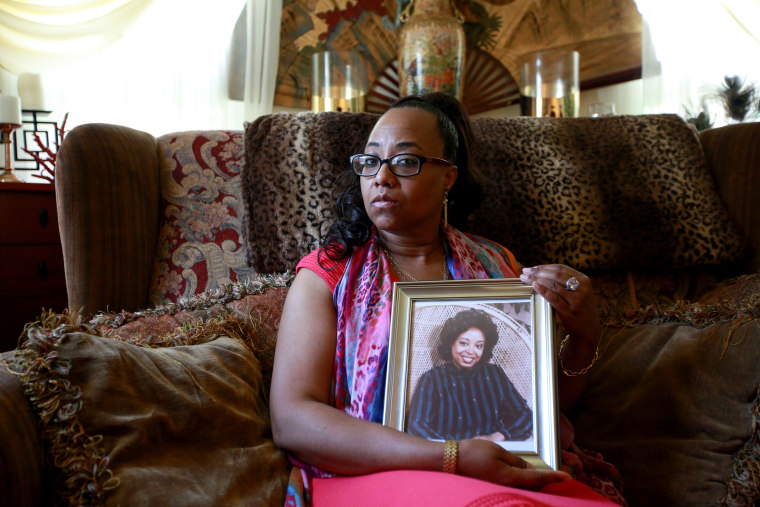
Many
homes ran out of money. Others were shut down over neglect documented
in government records. Fourteen homes were forced to close permanently,
displacing more than 900 residents to new facilities, sometimes hours
away.
The story of Joseph Schwartz and
Skyline Healthcare is one of swift expansion, alleged mismanagement and
catastrophic failure. An NBC News investigation reveals the scale of the
Skyline debacle, in which one man built an empire that quickly
crumbled, with painful consequences for vulnerable people.
It
also shows the failure of state and federal authorities to keep up with
just who owns and runs America's nursing home facilities, which house
1.3 million elderly and disabled Americans — about three-quarters of
them in beds paid for by taxpayers via Medicare and Medicaid. The states
are responsible for tracking ownership and conditions at nursing homes
within their borders, but only the federal government can monitor the
performance of firms that own or operate facilities across the nation.
The allegations of negligence at a major nursing-home chain come as the
Trump administration is moving to ease, not increase, accountability for
the industry, reducing penalties and terminating fewer contracts with
problem owners.
Schwartz, meanwhile, still
has ownership stakes in 53 nursing homes, according to federal records.
He has not returned multiple messages and emails requesting comment from
NBC News.
"I just don't think I've ever
seen anything like it," said Stephen Monroe, an industry analyst of
three decades who is the managing editor for the nursing home trade
magazine Senior Investor. "I have no idea what that family was thinking.
To go from 10 to 100 in two years with no real back office? I looked at
that and said from day one, 'Impossible."
'The Home Life You Crave'
A
Brooklyn, N.Y.-based insurance broker and landlord, Joseph Schwartz
entered the nursing home business more than 10 years ago after he sold a
Florida-based insurance company.
In a 2017
deposition for a malpractice lawsuit filed by a family alleging neglect
at one of his homes in Pennsylvania, Schwartz explained why he'd gotten
into the industry. ""Basically, I used to do a lot of servicing in
selling insurance policies to long-term care industry," he said, "and I
felt that I could, that I understand the quality care … and I will do a
very good job in doing the quality care for residents."
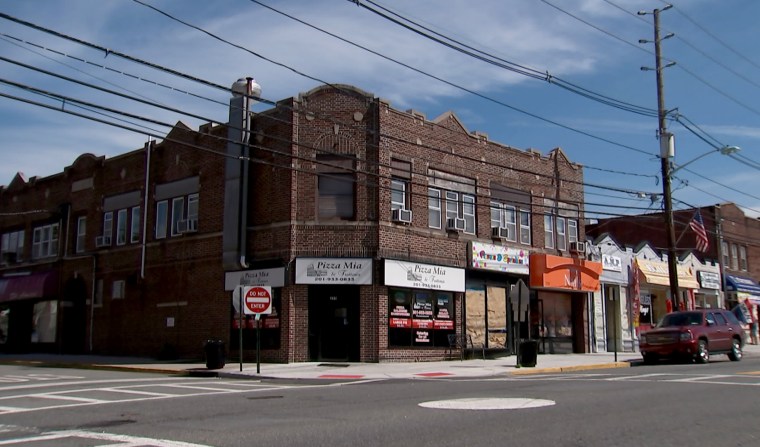
He
started with a half dozen homes, but after creating Skyline Healthcare
he began expanding rapidly in November 2015 with the purchase of 17
homes.
Schwartz ran Skyline out of a tiny
office above a New Jersey pizzeria. He was CEO, his wife Rosie co-owned
most of the properties and his two sons, Michael and Louis, served as
vice presidents. The company had a bare-bones website and a slogan,
"Skyline: The Home Life You Crave."
During the 2017 deposition, he said, "Skyline is an entity that is me."
His
net worth is hard to compute but real estate records show he owns over
$9 million worth of real estate in the New York metropolitan area,
including a gated house in Suffern, N.Y.
Within a year of his purchase of 17 nursing homes, Schwartz had taken on another 64, and by 2017 was operating more than 100.
Schwartz
wouldn't provide a number when the plaintiff's attorney asked him
repeatedly in June 2017 how many homes he ran. He confirmed it was more
than five, but asked if it was more than 100, he said several times that
he couldn't recall.

With
more than 100 facilities, experts estimate Schwartz would have been
juggling a few hundred million dollars a year in taxpayer money from
Medicare and Medicaid.
But problems had
emerged quickly. Within six months of Skyline's entry into the Arkansas
market in 2015, the state's attorney general was investigating reports
of neglect in Skyline facilities.
Marcela
Watkins, who visited her mother daily in Spring Place Health and Rehab
in Little Rock, said the food went downhill once Skyline took over. She
recalled staff serving raw vegetables and boxed pizza to elderly
patients.
"It's a money-making business," she said. "And guess who doesn't get the care? Our loved ones."
Karen
Coats's 57-year-old brother Donny Owens fell at another Skyline
Arkansas facility in 2017, heavily bruising his face. She said he laid
on the floor for 45 minutes before staff found him.
Coats said staffing was a "revolving door" and that she frequently complained, though little changed.
The
state attorney general later issued Skyline facilities more than
$200,000 in civil fines for neglect, preventable falls, failure to bathe
residents and maggots in a resident's personal medical equipment.
In
Massachusetts, staff say the Schwartz sons visited the properties
before taking over, promising new resources. But cuts started within a
year.
Certified nursing assistants were
reduced from five to three, according to ex-employees. Staff were told
that disposable briefs would be rationed to two per patient per shift,
instead of as needed, meaning patients were left to languish in their
own body waste. One former head of nursing told NBC News that management
offered giveaways to smooth over the changes.
She said she told them, "I don't want a [free barbecue] grill, I want to save the staff I have on the floor."
As problems mounted, Skyline continued to expand. In 2017, it entered South Dakota.
Schwartz
reportedly leased at least half of the homes he operated around the
nation from Georgia-based Golden LivingCenters, according to local news
reports and property records, which acted as Schwartz's landlord.
Last
year Skyline released a statement to a South Dakota reporter blaming
Golden for problems in its South Dakota nursing homes. Skyline said the
chain was "dedicated to providing quality care" and meeting its
obligations, but that Golden had caused the issues.
Monroe,
the analyst, said landlords like Golden hold some responsibility. "How
did they not do their due diligence to [vet Skyline]? That is a
mystery."
A spokesperson for Golden
LivingCenters conceded the company contracted with Schwartz to run 17
homes in South Dakota but would not comment on other states. The
spokesperson also declined to answer if the company vetted Schwartz,
saying, "He convinced a lot of people in a lot of states. He ran a big
scam."
By September 2017, Skyline had taken
over Ashton Place, a nursing home in Memphis, Tenn. Less than two
months later, a resident with a recent leg amputation was taken from the
nursing home, where he was found lying in feces, to a hospital, where
nurses discovered maggots and gangrene in his leg, according to the
police report obtained by local NBC affiliate WMC. His death two days
later prompted a state investigation, which revealed the man had not had
his dressing changed for two days. Staff said problems arose in part
when Skyline told nurses to abandon electronic medical records and go
back to paper record keeping.
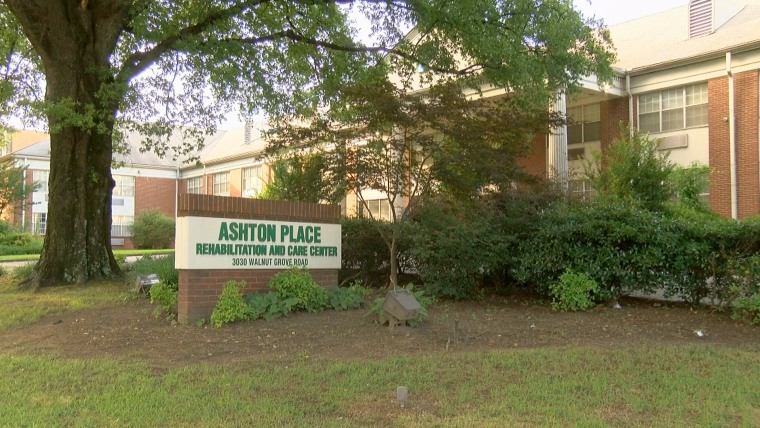
During the investigation, the company's medical director told inspectors, "I have no support, no direction."
A
spokesperson for the state agency that approved Schwartz's takeover of
Ashton Place said while Skyline had faced problems in other states, that
did not disqualify it from operating the Memphis nursing home.
A
month after the death, the Centers for Medicare and Medicaid Services
(CMS), the federal agency that oversees the nursing home industry,
terminated Medicare certification for the facility and another Skyline
property in Tennessee. It terminated a third in the state in 2018.
According
to a CMS spokesperson, "Each individual facility is separately
certified and held accountable for compliance with CMS minimum health
and safety standards." The spokesperson adds that "CMS has limited
authority to intervene when a facility is struggling financially.
Collapse
The government, and taxpayers, were paying for Skyline's rise.
Industry analysts say nursing homes are on the decline as other options, like assisted living, emerge. The number of residents has fallen from an estimated 1.5 million in 2010 to 1.3 million in 2015. But they also say a "silver tsunami" of baby boomers in their 80's may be on the horizon.
For the time being, residents in nursing homes
are likely to be poor, vulnerable and on Medicaid, which is paid for by
federal taxes.
But despite being subsidized by the government, as he took over more homes, Joseph Schwartz was racking up debts.
Former
staff at Skyline nursing homes say Schwartz would bring in a vendor,
let the bills stack up, then find another vendor and do the same thing
again.
During the June 2017 deposition for a
lawsuit alleging neglect at a Schwartz-owned facility in Pennsylvania
between 2012 and 2014, which he later settled, plaintiff's attorneys
asked about unpaid bills and bounced checks. Schwartz insisted that he
paid "everybody." But he also said there could be reasons for not paying
contractors, including unfinished work. "Because a guy sends a bill in
doesn't mean he needs to get paid," said Schwartz.
With
residents running out of food, several states began to take
extraordinary measures. Starting in March 2018, Nebraska and then
Pennsylvania assumed control of some Skyline facilities and assigned
third parties to run them.
South Dakota was next. In April 2018, Debbie Menzenberg, a local Skyline administrator, sent a panicked email to the state agency responsible for nursing homes, claiming Schwartz's son was telling her the company had no money.
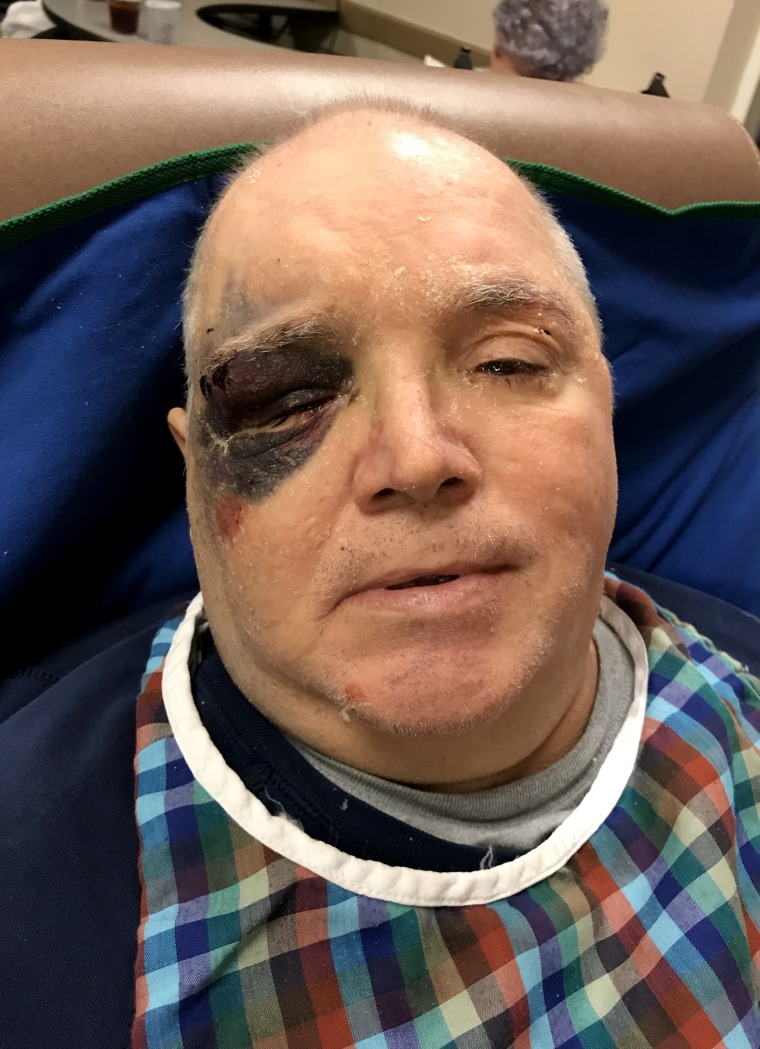
"I
just had a call from Louis Schwartz," she wrote in the email, which was
later produced in court, "there is no money — he told me to discharge
residents????" Later she wrote, "I need water paid at Bella Vista and
Prairie Hills today or it will be SHUT OFF – Skyline is SILENT!!!"
During
the 2017 deposition, Schwartz repeatedly defended the quality of care
at his nursing homes, saying he tried very hard to do "whatever is
needed" for residents, but seemed reluctant to talk about what he was
doing with money from the homes.
The
attorney for the plaintiff pressed Schwartz on whether he took cash from
the facilities. He said he did, but his lawyers objected to questions
about how often he took money and whether he made the decision. Schwartz
then said he would take the money as needed, and would listen to the
recommendation of his CFO, but would ultimately make the decision
himself.
The plaintiff's attorney then asked Schwartz how much money he took out of the Pennsylvania home where the neglect was alleged.
"Those draws, for example ... they could amount to over a million dollars over the course of a year?"
"Could be," answered Schwartz.
"Now,
when you're taking out draws," asked the lawyer, "that does take away
from some of the cash on hand at the facility to operate?"
"I don't think so," said Schwartz.
Who is responsible?
Advocates
and analysts are still wondering how Schwartz's empire was allowed to
grow so large so quickly, without any state or federal authorities
appearing to sound an alarm bell.
The
nursing home industry is turbulent, with frequent ownership changes —
one of the homes Schwartz took over in Arkansas had five owners in just
six years.
While states are largely
responsible for determining if a new owner is financially suitable, the
process varies dramatically state by state. In Arkansas the process
doesn't even require the new owner to submit financial statements.
The
federal regulator, CMS, is the only oversight agency with a birds-eye
view. Each time a nursing home anywhere in the country changes hands,
the company has to submit a form to CMS, a regulation introduced as part
of Obamacare.
A CMS spokesperson, however,
told NBC News that the agency is not responsible for assessing an
owner's finances, "CMS authority over nursing homes relates to
compliance with health and safety requirements, not their well-being."
But
CMS staff can review ownership patterns, said Alice Bonner, who served
as the director of the division of nursing homes for CMS during the
Obama administration.
"We would have conversations about the change in ownership," she said. "We picked up on things like that."
The Trump administration has taken a different
approach to oversight. While extreme instances of neglect at Skyline
facilities were stacking up, the administration was reducing fines for
troubled nursing homes.
In early 2017, the
nursing home industry's trade group sent President Donald Trump a
congratulations on his election victory and asked for a series of
regulatory changes. One request was a reduction in fines.
Six
months later, the administration began implementing a rollback in
nursing home fines. Regulators are now encouraged to use one time fines
instead of daily fines. That's led to a 34 percent drop in overall
penalties for problematic nursing homes between 2017 and 2018.
CMS says the change was to make punishment "fairer, more consistent and better tailored to prod nursing homes to improve care."
David
C. Grabowski, a professor of health care policy at Harvard Medical
School, disagrees. "For those more serious deficiencies it's important
to hold them accountable rather than a one-time fine," he said. "The
idea that a $10,000 fine will change their behavior, I don't believe
that."
A CMS spokesperson told NBC the
agency "is committed to protecting nursing home residents to the fullest
extent within the agency's legal authority to set and enforce safety
and quality standards."
The number of
nursing home contracts terminated by CMS has also declined. Between 2014
and 2017 the agency stopped payments to 14-18 homes annually. In 2018,
that number dropped to just three. There have been four terminations so
far this year.
CMS says the drop in terminations is not the result of a policy change.
Toby
Edelman is the senior policy attorney at the Center for Medicare
Advocacy, a non-profit that works to improved access to health care for
the elderly and disabled. Edelman says the collapse of Skyline is a
warning. "We need to have very strict rules about who's eligible to
operate a facility, what the standards are, what their financial
backgrounds are," said Edelman. "And if the facility did a bad job in
one place, it's not likely to do a good job in another facility. Why do
we want to give them more?"
The Aftermath
Today,
Schwartz is busy fighting more than a dozen lawsuits from residents'
families alleging neglect and claiming he siphoned money out of the
nursing homes. His lawyers have denied those allegations in court.
His
office above the pizzeria is shut down. Litigants in these cases have
spent tens of thousands of dollars attempting to serve him at his
Suffern address, but he's rarely home.
Nurses
have had to find other jobs. In late June the Massachusetts AG fined
Schwartz nearly $85,000 for withholding pay from employees.
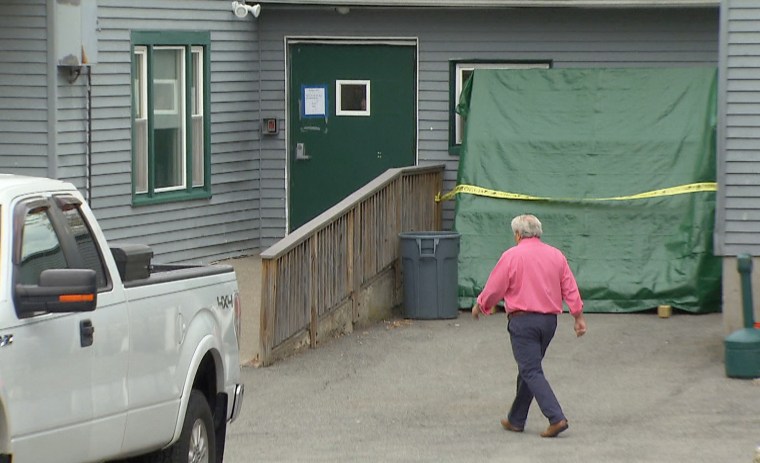
Yet
the Skyline saga is not over. Last year a Skyline spokesperson told
reporters the company "had been working to transition out of the nursing
home industry" but a CMS spokesperson confirmed the family retains an
ownership stake in more than 50 homes.
In
New Jersey a home once owned by Skyline but now owned by a separate
company run by Joseph Schwartz's son, Louis, is facing accusations of
neglect.
Louis Schwartz did not respond to requests for comment about the facility, which is called Andover Subacute Care II.
In
January, the facility was cited by the state for endangering residents
after a woman with dementia wandered out of a locked unit through two
sets of broken automatic doors. She was found in the parking lot at 4:30
a.m., sitting on ice-covered ground without a coat, socks or shoes. It
was four degrees below zero, according to a police report, and she
suffered from "severe frostbite."
Her
daughter, Terri Thompson, said when she reached her mother's hospital
bed that morning, she could barely hear a heartbeat. Her mother's nails,
which she used to love to paint, have fallen off, as has much of the
skin on her arms and legs from the frostbite.
Full Article & Source:
A nursing home chain grows too fast and collapses, and elderly and disabled residents pay the price

No comments:
Post a Comment